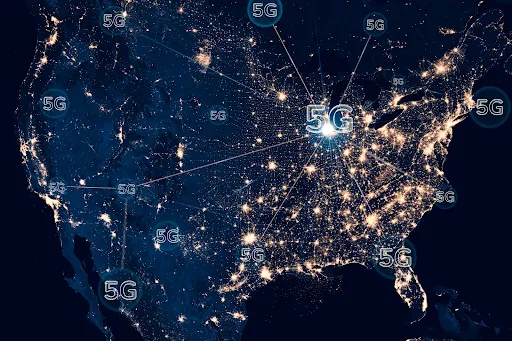Understanding the Basics of the World Wide Web
The Internet has become an integral part of our daily lives, and we rely on it for communication, entertainment, work, and education. However, many people don't understand the underlying technology that makes it possible. In this article, we will explain how the Internet works, from the basics of data transmission to the role of servers and protocols.
Introduction: What is the Internet?
Before diving into the technical details, let's define what we mean by the Internet. The Internet is a global network of interconnected computers and servers that use a standardized communication protocol to exchange data. It is often called the World Wide Web or simply "the web." The Internet allows users to access information and services from anywhere in the world, provided they have an Internet connection.
How Data is Transmitted on the Internet
At the heart of the Internet is the transmission of data, which is achieved through a series of interconnected networks. When you send an email, watch a video, or browse a website, your device sends data packets to a server that contains the information you requested. These packets are broken down into smaller units and transmitted through routers, which act as traffic directors, directing the packets to their intended destination.
IP Addresses and Domain Names
To identify devices and servers on the Internet, each one is assigned a unique identifier called an IP address. An IP address is a numerical label that consists of four sets of numbers, separated by dots. For example, 192.168.0.1 is an IP address that might be assigned to a router. However, IP addresses are difficult for humans to remember, so domain names were created as an easier-to-remember alternative. Domain names are alphanumeric labels that are mapped to IP addresses through a system called the Domain Name System (DNS).
Protocols and Standards
To ensure that data is transmitted reliably and efficiently on the Internet, a set of protocols and standards were established. These include the Transmission Control Protocol (TCP) and the Internet Protocol (IP), which define how data is broken down into packets and how packets are transmitted through the network. Other protocols include HTTP (Hypertext Transfer Protocol), which is used for web browsing, and SMTP (Simple Mail Transfer Protocol), which is used for email.
Servers and Clients
To access information on the Internet, you use a software application called a client. A client can be a web browser, email program, or any other program that communicates with a server. Servers are computers that store and provide access to data and services, such as websites or email accounts. When you request information from a server, the server responds by sending data packets back to your device.
Types of Internet Connections
There are several ways to connect to the Internet, including dial-up, DSL, cable, fiber optic, and wireless. Dial-up was the first type of Internet connection, but it is now obsolete. DSL (Digital Subscriber Line) and cable are popular types of broadband connections that use existing telephone or cable TV lines to transmit data. Fiber optic connections are faster and more reliable than DSL or cable, but they are not available everywhere. Wireless connections use radio waves to transmit data, and they are commonly used for mobile devices and in remote areas.
Internet Security
The Internet can be a dangerous place, with threats such as viruses, malware, and hacking attempts. To protect against these threats, you should use antivirus software, keep your operating system and applications up to date, and avoid clicking on suspicious links or downloading unknown files. Encryption is also important for protecting sensitive information, such as passwords and credit card numbers, when they are transmitted over the Internet.
The Future of the Internet
The Internet has come a long way since its inception, and it continues to evolve at a rapid pace. Some of the technologies that are shaping the future of the Internet include:
5G Networks
5G is the latest generation of mobile networks, offering faster speeds and lower latency than previous generations. 5G networks will enable new applications and services, such as self-driving cars, remote surgery, and virtual reality.
Internet of Things (IoT)
The Internet of Things refers to the growing network of connected devices, from smart thermostats to wearable fitness trackers. The IoT has the potential to revolutionize many industries, including healthcare, agriculture, and transportation.
Artificial Intelligence (AI)
AI is already being used to power virtual assistants, recommendation engines, and predictive analytics. In the future, AI could play an even bigger role in the Internet, from improving search algorithms to enabling autonomous decision-making.
And so, the Internet is a complex system that has transformed the way we live, work, and communicate. Understanding how the Internet works can help you make better use of it and stay safe online. As technology continues to evolve, the Internet will continue to change and shape our world in ways we can't yet imagine.
FAQs
What is the difference between the Internet and the World Wide Web?
The Internet is a global network of interconnected computers, while the World Wide Web is a collection of websites and web pages that are accessible through the Internet.
How do I know if a website is secure?
Look for a padlock icon in the address bar or the letters "https" in the URL, which indicate that the website is using encryption to protect your data.
What is a DNS server?
A DNS server is a computer that translates domain names into IP addresses, allowing devices to locate and communicate with servers on the Internet.
Can I connect to the Internet without an Internet service provider (ISP)?
No, you need an ISP to connect to the Internet, as they provide the physical infrastructure and routing necessary for data transmission.
Will the Internet ever run out of space?
No, the Internet is a virtual network that can expand infinitely. However, the physical infrastructure that supports the Internet may become congested, leading to slower speeds and degraded performance.

